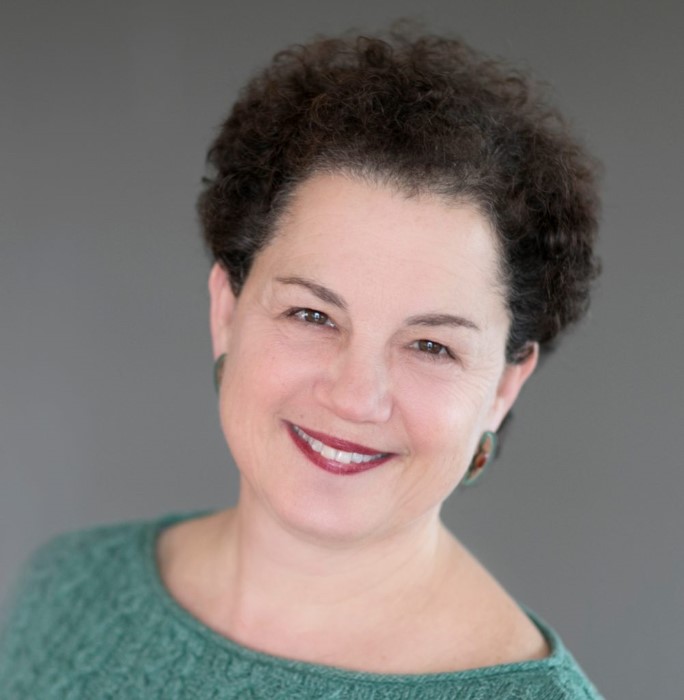
The experience of adopting in midlife led Cyma to research and connect with hundreds of women across the US and beyond in order to share their stories of midlife motherhood (and later fatherhood). Cyma would become a blogger, writer, speaker and activist in the process.
Tell us a little bit about your background.
I grew up in Connecticut as an only child. Lonely in my family of origin, I turned to the arts to soothe and fill me as soon as I could talk. I began playing the piano at age three and took up dancing shortly afterward. By the time I’d finished high school, I was writing poetry, doing pottery and photography, and had utilized nearly every other form of artwork I could, shy of being an artist (I can’t paint or draw).
While I expected that I would become a professional classical pianist or perform on stage, I grappled mightily and seriously with stage fright. As a result, I fundamentally changed my life’s direction during college, immersing myself in Renaissance studies—English Literature and Art History—and became a journalist before graduation.
All along the path, I struggled with a very strong sense that I hadn’t become what I was destined for—that my purpose hadn’t been achieved and that my goals and desires had somehow failed me. A handful of years later, when journalism failed to pay the bills (and noting that friends with little creativity or smarts were often making significantly more money than I), I landed in the business world and succeeded in several real estate endeavors.
While I continued to dabble in writing, I was resigned to the fact that this might be all I could expect from my life. I was the last person I knew in my large circle of friends to marry and immediately became a stepmom. Assuming that God had given me these two children (as a means to an end), I expected that I would continue to co-parent them and also continue along with my successful career as the remainder of my life unfolded.
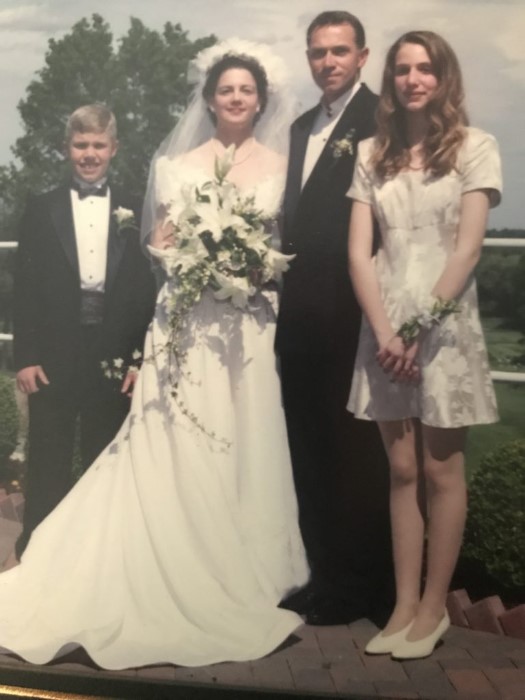
When did you start to think about making change in midlife?
I did not give my midlife (crisis) change much thought. All I knew was that I was more than full of discontent and unhappiness and felt like something was missing. I felt that my life was passing me by and that I didn’t have much to show for it. I wasn’t sad when I saw pregnant women or women with their children, as others have shared with me. But, I somehow felt gypped and was spurred on by the fact that I did not have a legacy (because of the Holocaust and other factors, I am the last person in my family unit in the world). Without much forethought, at the age of 44, my husband and I began adoption proceedings to start a new family. I did not at all look, act, or feel my age; to me, age was just a number. The trips to Russia were just intended to be the first of two journeys toward parenthood (again), but little did I have an idea about what else was going to happen.

What is your next act?
I’m a freelance writer (Huffington Post contributor, etc.), author (The Zen of Midlife Mothering), blogger (Mothering in the Middle), speaker, talk radio show host (For Women Over 40), TV producer (local access TV station focusing on activism in the community and at-large), and businesswoman (decades of real estate experience).
How did your next act come about?
Seeking answers and perhaps subconsciously support and comfort, in 2006, I first formed a support group for mothers over 40, of the same name. I advertised all over the region and got something like 14 women at the first meeting. (Please note that this was a dozen years ago, when the topic of motherhood over 40 was just peeking in over the horizon). Knowing none of the women beforehand, I was stunned to realize that there were other women making these same life choices around me. But, within months, the group disbanded. While I’m not sure why, I noticed that each woman would only gravitate to the other women who had found motherhood over 40 via their own particular method – surrogacy, adoption and IVF are a few examples which come to mind.
To me, it didn’t matter how these women chose their path; the importance to me was that they chose it at all. These were pioneers, I thought! Brave, iconoclastic, successful, and (many) highly driven women who had ventured off into new territory. Why weren’t they drawn toward each other?
As a former journalist, I came up with a new game plan: I would network across the country to find other new older mothers. I was systematic in my approach—driven, passionate, and crystal clear. I would seek (several) distinct demographics (single women, same sex partnerships, first-time mothers, repeat mothers, etc.) and then pursue the same choices for each: IVF, surrogacy, adoption, guardianship etc. I would capture their stories and I would show the world why these women had made their choices.
I began by asking friends, then friends of friends, then widened the loop to include distant friends, family friends, etc. They, in turn, asked their college friends, childhood friends, etc. I asked anyone I saw anywhere who looked like a midlife mother (they nearly always were!) and try to include them in my work (or asked them who else they knew). I called Native American Indian reservations and contacted Asian communities in order to get a good cross-section of women. I asked the reporters who were interviewing me, radio hosts, my doctors.
To say I was driven would be an understatement. But I needed and wanted to know who these women were: Why did they do this? How did they do this? What did they need to do, in order to pursue this? How did they feel? How did their family and friends feel? Most importantly: Were they to live their life over again, would they choose to do it this way?
I spent more than two years and hundreds of hours on the phone doing interviews. I saw distinct patterns in age groups (40s/50s/60s); began to hear similar stories from a variety of women; could see the driving forces behind their life choices. I saw how the earliest pioneers (now in their 60’s) felt impacted, twenty years later. I learned how many of them refused to tell their family and friends their true ages (some wonderful women refused to do the interviews citing fear of losing their employment). I felt that each woman had a unique story and that every story deserved to be told.
Eventually, through a series of serendipities, my project was launched not as a photography book as I had hoped (I hired award-winning East and West Coast photographers—themselves midlife mothers), but as an art gallery show, NURTURE: Stories of New Midlife Mothers, which subsequently traveled North America. It featured the words and photos of 26 out of the 60 women I had interviewed across the country. NURTURE was intended to dispel myths about middle age, introduce society to the increasing number of women choosing midlife motherhood, provide support for future generations of women to make life choices irrelevant of age, and simply give this group a voice, a face, and a forum. It was my desire that in viewing this show, women would find the hope, inspiration, or support necessary to make personal changes in order to live fulfilling, truthful lives.
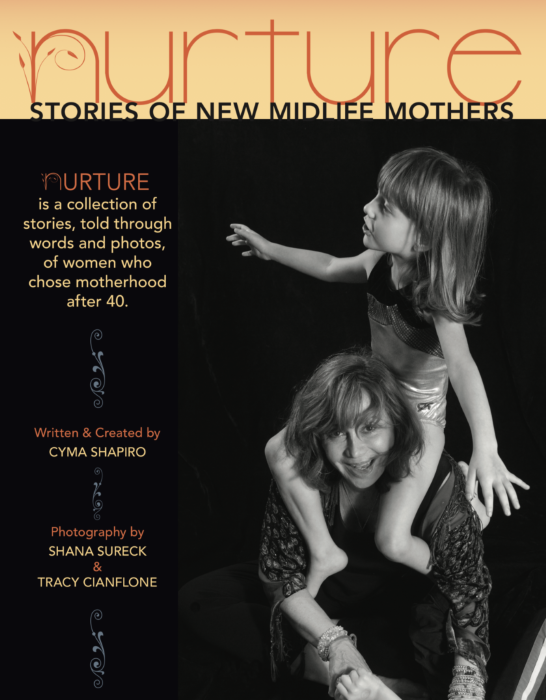
(In my case, I felt I had no choice but to find, pursue, and finally get my two children. My journeys to Russia became a spiritual epiphany, which ended in the adoption of my children who I believed were meant to be mine and were just waiting for me to claim them.)
If I had an image of me conceiving this project (which took on a life of its own well into most nights), the intensity of which was never ever diminished, I was catapulted on by my own fortitude and, I truly felt… the heavens. I simply could (and would) not stop until I had birthed this whole baby.
Within months of the show’s inception, I decided that these women’s voices needed to be heard on a more global level and subsequently created what became one of the largest websites in the world, Mothering in the Middle, dedicated to women and men choosing parenthood over 40. In five years, we featured more than 120 writers from seven countries, many of whom were well-known authors and writers. I also started speaking at my show’s openings, women’s conferences, and other groups. I was regularly interviewed by local, national, and international radio and print press, and became a Huffington Post contributor.
Slowly but surely, it occurred to me that I had found my voice, my purpose, and my passion but there were no jitters, no second guessing myself about how I looked or how I appeared; I also no longer had any stage fright. I was proverbially naked in so many ways and yet the world seemed to welcome my presence. I felt I had claimed my place, and was here to stay. So many women and so many stories. Little did I realize that all along I was just looking for me.

How hard was it to take the plunge?
There just wasn’t any preparation, stupidly or not. My experience can be summed up in the first paragraph of the introduction of my book, The Zen of Midlife Mothering: Essays from MotheringintheMiddle.com:
“Nine years ago, while sitting in the Moscow Marriot at age 46 with my newly adopted daughter, I realized that I was going to be old when she graduated from college. The ‘old’ was nearly my grandmother’s age—old! This was the very first time I’d ever felt my mortality and had ever even stopped to consider my chronological age. I had long ignored the biological clock theory thinking that it was mere hyperbole. I always looked, felt and acted much younger than my age. Although it came as a shock to me that I had not previously become pregnant, on that cold winter’s night nearly 9000 miles from home, I finally felt my life begin. My age was a nagging problem, but at that moment I was filled with pride, joy and the fullness of starting a new family. I could see nothing but rosy times. Or so I thought.”

How supportive were your family and friends of you midlife adoption?
Arriving back home with our daughter, we expected our wide berth of family and friends (and the world, come to think of it) to share our joy. However, their reactions were puzzling—jealousy and confusion. Most of them were completely shocked and in disbelief. They simply had no idea that we were going to pursue a family, again. I do not think anyone was thinking in terms of supporting us when they thought we’d gone “mad.”
I started questioning myself at every turn: Why would we do this? Why had we done this?”
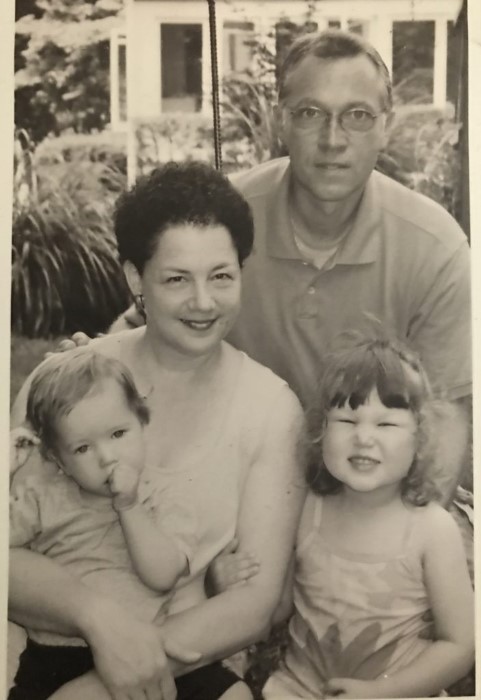
What challenges did you encounter?
I (more than my husband) felt totally alone. Although our decision seemed perfectly logical, it seemed like the rest of the world didn’t agree. Adopting a child in middle age left me feeling isolated and lonely. I could not find anyone doing what we’d done, anywhere. Everything a new mother might consider—from finding (same age) contemporaries to share parenting experiences and parenting stories with to talking about body changes with childbirth, for example, I did not have. Remember that I had co-parented two children already who were now in college. I had little fortitude for the sometime “foolishness” (I felt at that point) of new mothering or even new parenting (i.e. “keeping up with the Jones”) and found this, too, to be disconcerting. Even the few women I could find, nationally and online, who had chosen new older motherhood did not want to connect nor publicize their ages/stages (a theme I found more frequently during all my projects), choosing anonymity and the comfort of small inner circles.
What did you learn about yourself through this process?
I learned how resilient, determined, creative, strong, talented, inventive, inquisitive, outgoing, connected to others, and passionate about women’s causes I can be. It has been said many times that my work makes me a pioneer. I did not intend for this to happen, but I feel passionately concerted about carrying on the mantel for subsequent generations of women.
Looking back, is there anything you’d have done differently?
I might have more seriously considered the ramifications of what we were undertaking, both at our respective ages and with the uncertainty of adopting kids. However, I would not have remotely become the person I am today had we not adopted, and I like what I see (in myself).

Recent photo of our family
What advice do you have for women seeking reinvention in midlife?
Although there is a biological and chronological reality that I’ve come to know and respect regarding women and aging, I also feel as if age is just a number. In truth, I fundamentally believe that in this time and place, women have the possibilities and opportunities to reinvent themselves in whatever way they wish.
While I wish I had a magic wand and good words to convey that reinvention is easy and solutions abound, they don’t. And, it’s made even more difficult by the realization that we live in rapidly changing times, that mores we were raised with just don’t apply in so many ways and areas, and that age discrimination is very real (especially for women). However, I do think that with a clear-cut plan and some professional advice, much is possible. I would suggest that women consider going to a therapist or even a career counselor or life coach (and I mean a really good one, not just any one) to see if her ideas sound plausible and possible. I think a support group is beneficial and really helpful to many women. If you can’t find an applicable one, start one yourself.
What advice do you have for those interested in pursuing midlife adoption?
Women (and men) have many more means at their disposal, now, to pursue parenthood—fostering, adoption, guardianship, blending stepfamilies, IVF, surrogacy—methods once determined by age limits. As time moves on, barriers are being lifted to accommodate the needs and desires of this progressive world we live in.
As I’ve said many times, especially now that I’m older, I think there are clear-cut biological and chronological limitations to doing some things in midlife. I wholly and fully support an individual’s desire to parent (first, last, repeat-time) in midlife (or at any age that feels right). It has been repeated many times to me that wisdom, patience, the knowledge gained in life, and possibly financial and personal aspects (like, a secure family unit) might all help enhance this experience too. But I also think the realities of aging—like declining health, stamina, fortitude, and the sense that you might be divesting too much of yourself (i.e. if you are also working, parenting older children, caring for aging parents, navigating peri- or menopause, yourself, or even having a midlife “crisis”) are really tough to handle. Having said that, I think that if you want a child or children, you should investigate the possible methods to achieving this, pick one that seems right for you (financially or otherwise) and go for it.

What about those interested in your media endeavors?
This journey was very long and very hard for me. I learned much about (the possibilities and the limitations of) communications and the media; publishing and the art of writing a book; speaking and the art of learning to engage your audience; how to best convey yourself in a variety of situations; how to maximize financial possibilities. I also learned that in this entire realm there are SO MANY other women all clamoring for a rise to the top; a place to voice their own truths—an opportunity to make money. I know that the vast majority of women in this genre rarely ever make money, or much money at all. Most do their work for the love of it and the opportunity to share and/or help others.
If you are drawn to anything relating to media work, anything you are interested in should be thoroughly investigated and studied well in advance of starting. In many ways, during my more than one decade of this work, I just jumped exuberantly into the pool without ever looking for sharks; unfortunately, I sometimes found them.

You want to create a blog? Look into doing it yourself or hire someone you trust to set up a template for you (there are so many companies offering these for free or for very reasonable costs). You might also want to hire a content provider to help you with marketing strategies to expand the reach of your blog and/or pursue sponsorships for it.
Want to publish a book? Thoroughly study the possibilities of doing so with a publishing house vs. self-publishing (and that’s even IF they will look and respond to your initial query letter). Consider the cost effectiveness of using them vs. yourself, including the fact that without a publishing house behind you (in itself a tall order), YOU will need to book all of your book signings everywhere, do all of the publicity behind it, and figure out the best way to distribute the book either on your own (a daunting task!) or with a book broker.
In the case of my own book, unfortunately, I didn’t spend the time to really research this; once the book was published, I realized I needed to take the ball and immediately run with it. In some ways, I was behind the eight-ball, but I know that I was also at the cusp of the now bourgeoning market of self-publishing. I ended up making and booking the book tours; contacting press; sending out copies for review (not only for five-star reviews or otherwise on many book sites, but for added publicity). I publicized it on my websites, on social media, through my contacts. I sold it at my gallery openings, when possible. I wish I had utilized a book broker. By the time I found one I truly trusted and liked (Amy Collins of New Shelves) my sales were waning and I had moved on to other endeavors.
Want a radio show? Assuming you cannot immediately get into a commercial market (and nearly no one ever can), consider the efficacy of creating a podcast and/or (YOU) paying to have your show on a middle market station (again, you’ll need to consider finding your own funding sources/sponsorships and a host of other publicity/advertising related costs).
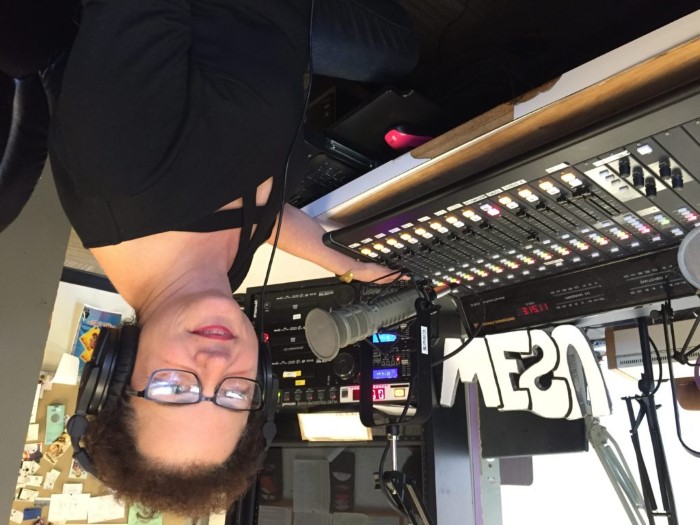
Want to freelance or otherwise write? Start a blogsite first so anyone interested in your work can also see the volume, depth and scope of your abilities. While creating the actual online site may be free for you, especially if you do it yourself, maintaining the online address is not. You will need to pay someone like GoDaddy or Bluehost an annual fee for keeping your online domain (important if you wish to create and stay with a particular branding).
Want to speak? If you have an expertise or are considered an expert, offer yourself to local groups for free. Build up your confidence and your name/reputation. Over time, you might be just what someone is looking for—and is willing to pay for. If you’ve self-published a book, no matter how small, consider offering it for sale after you speak and consider offering it online if you pursue a blogsite. One tip: Perhaps the most common media-related question I get is regarding writing and selling one’s memoirs. While you might want to do this for your own benefit, it is only those people whose story is truly one-of-a-kind-unique or who are household names who get much traction from this pursuit (and even they don’t often sell the numbers of books they expect!).
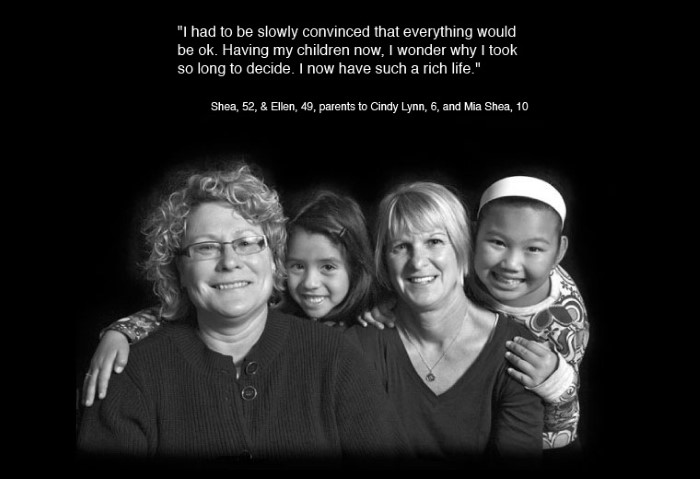
If you’ve self-published a book, contact a radio show which features authors: Authors on the Air, Good Books Radio, and The Book Show are just a few of the most popular ones.
In many of the above realms, a cross-current to another vein—like pursuing publishing while operating a blogsite, speaking before groups and also offering your book, hosting a radio show while establishing your presence online—is really the best way to create interest and buzz. Go for it: Establish your name and create a following.
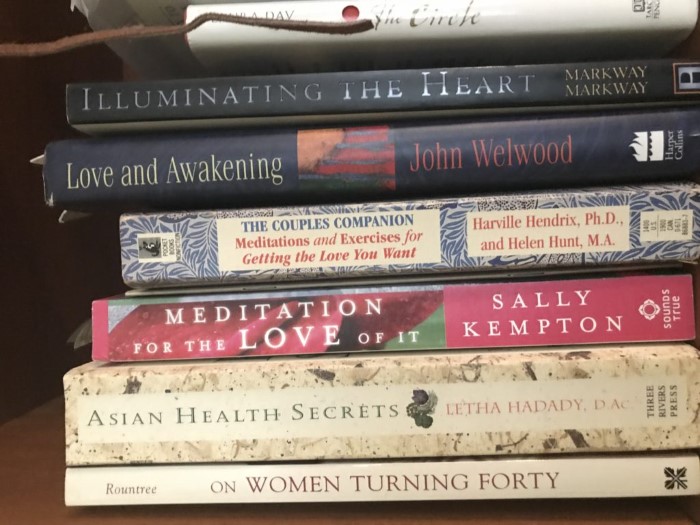
What other resources do you recommend when it comes to midlife adoption?
Websites for Motherhood Over 35/40:
Jan Andersen’s http://www.mothersover40.com
Sharon Simons’s http://momatlast.com/category/moms-over-40/
Robin Gorman Newman’s http://motherhoodlater.com/
Books:
The Impatient Woman’s Guide to Getting Pregnant by Jean Twenge (UK) and website http://impatientwoman.com
Right Time Baby: The Complete Guide to Later Motherhood & Pregnancy by Claudia Spahr and website http://www.righttimebaby.com/
45 and Pregnant: How I Conceived and Delivered Naturally by Liz Angeles
Modern Families: Parents and Children in New Family Forms by Susan Golombok
You Can Adopt: An Adoptive Families Guide by Susan Caughman and Isolde Motley
99 Things You Wish You Knew Before Choosing Adoption by Robert A. Kasky and Jeffrey A. Kasky

What’s next for you?
Our family recently undertook 1,000-mile relocation from New England to the South. I’m still riding the crest of my last act (I continue to give national press interviews and keep up with my Midlife Mothers Facebook page but I am now also pursuing whatever means I can to further issues like gender and racial equality, women’s issues, and eradicating poverty. I’m even getting my toe wet into the ancillary spokes of politics. I live in an area where these topics are of vital importance; I believe that in some way, I can make a difference (I have already spoken before groups and on panels).
At this stage, the topic of new older parenting is no longer new to the public. As women have pushed the envelope regarding age and mothering to 45, 50 and 55, what seemed so foreign—so iconoclastic, “different and unusual” a decade ago—with more pejorative terms, is more mainstream and accepted. In fact, (over) 40 doesn’t seem so old today when discussing motherhood at all.
With that in mind, I happen to have a few hours of free time, today—I’ll just need to sit down and figure out what to do next.
Connect with Cyma Shapiro
Email: midlifemothers@gmail.com or cymashapiro@gmail.com.
Websites: www.MidlifeMothers.org, www.MotheringintheMiddle.com, and www.forwomenoverforty.com.
Facebook Page
Book: The Zen of Midlife Mothering: Essays from MotheringintheMiddle.com
LinkedIn
Twitter
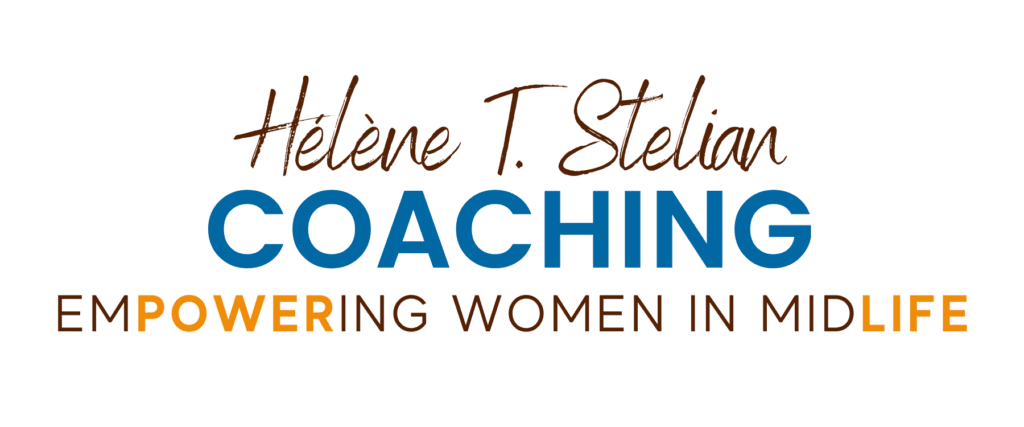
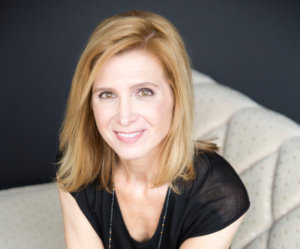
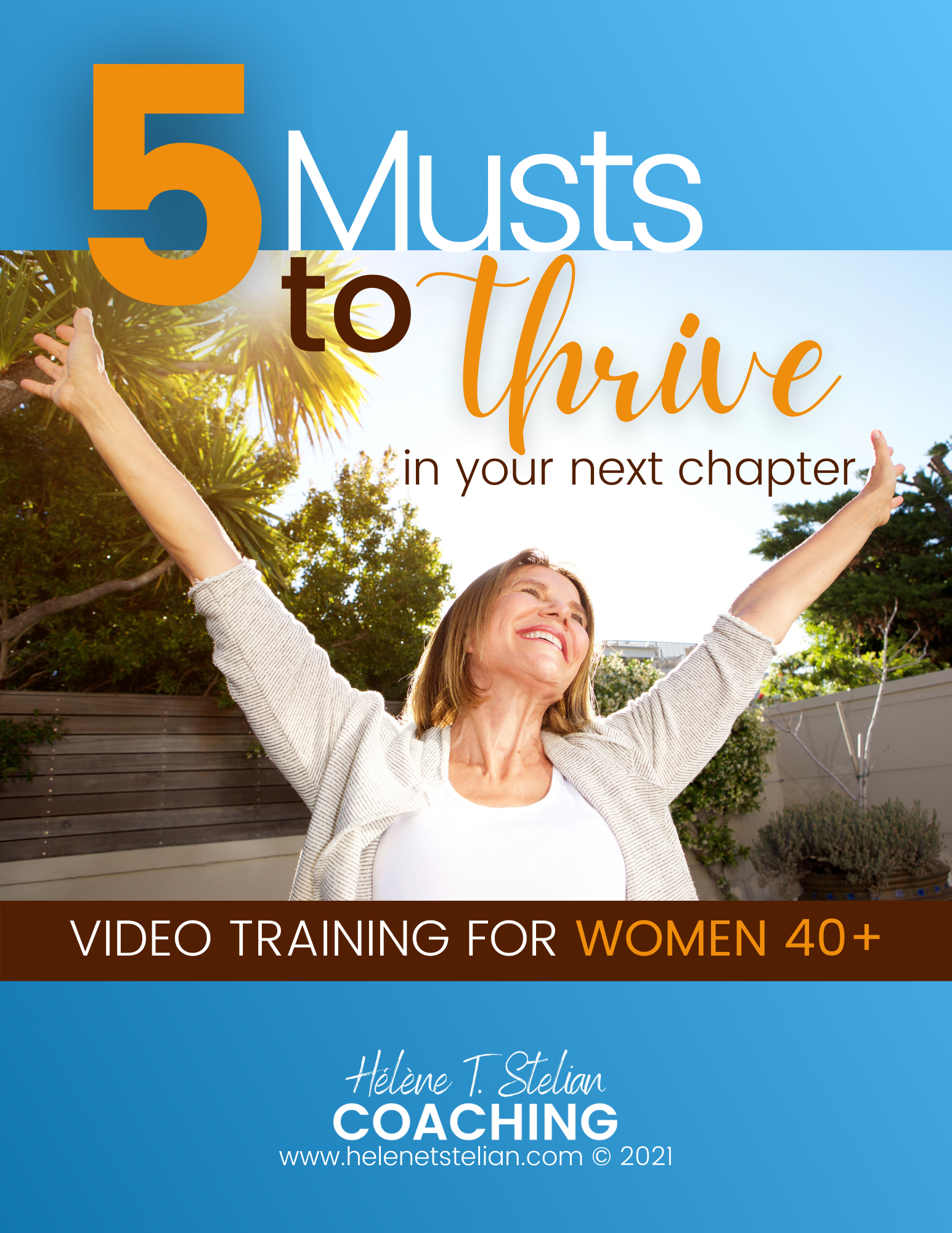



Cyma has revealed her personal story with so much honesty. There is much to be learned from her experiences and her self examination. She is the ipitomy of a human’s creative, brilliant metaphorisis. I cannot wait to see what she does next!
Thanks much, Faith. Although this journey and work might have (internally) been “about me,” I never wanted to share my story, preferring to always present the words and images of others. This was tough (for me) to do. But, I hope there’s some value in it for others. Appreciate the kind words!
TO MY BEAUTIFUL, SWEET, INTELLIGENT, CREATIVE,WONDERFUL & SO SO VERY VERY MUCH MORE LOVING COUSIN CYMA, We (David, Aunt Barb & myself) truly were touched emoitionly, mentally by reading this. I personally feel you not only inspired Mothers over 40 but Women of all ages. You should feel extremely Proud of yourself for so many reasons !!!!!!!!!!!!! LOVE SUSAN
I love you so much and was always is inspired me to be the best person I can just like you
Very powerful and inspiring. Thanks for sharing